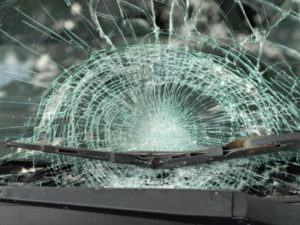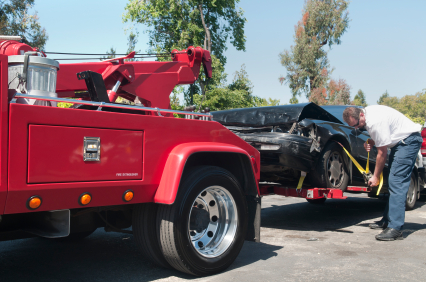8 Functions of Auto Insurance
 Not only is auto insurance required by state law, but it also serves a number of functions that can protect you and your family. The only choice you should have regarding car insurance is not whether or not you should obtain it, but what type of coverage you should go for.
Not only is auto insurance required by state law, but it also serves a number of functions that can protect you and your family. The only choice you should have regarding car insurance is not whether or not you should obtain it, but what type of coverage you should go for.
Go for an affordable policy by entering your ZIP in our FREE tool and reviewing what car insurance deals are available!
Your policies can include or exclude a variety of insurance types. While a few basic types are typically required by law, others are wholly optional. The types of coverage required usually have a required minimum limit on each, but the limits on your other coverage are usually your choice. Lower limits typically result in lower premiums, but costs that go above the limit will have to come from your pocket. To get a better idea of what you can include in your policy, it’s helpful to look at what an insurance policy does for you.
Covers the Cost of Other People’s Property in a Crash You Caused
Liability coverage pays for the damage you caused to others in an accident that was your fault, according to the Illinois Department of Insurance. One type of liability coverage is property damage coverage, which takes care of the costs of repairing or replacing the other person’s vehicle. It also extends to cover any personal property you may have damaged in an accident, such as fences, signs, trees, light poles or even buildings and homes.
 Reimburses Others for Injuries Stemming from a Crash You Caused
Reimburses Others for Injuries Stemming from a Crash You Caused
The second type of liability coverage is bodily injury liability. This takes care of the cost of injuries to others in a crash you caused. The coverage can apply to the other driver, pedestrians, or passengers in another vehicle. It may also extend to cover your passengers as long as they are not household members. Household members can be covered under a different type of auto insurance.
Covers Repair or Replacement of Your Own Vehicle Damaged in a Crash
While liability coverage pays for damage you caused to others, it does not take care of any damages your own vehicle may have incurred. Here’s where physical damage coverage comes in. This type of auto insurance is also available in two types. Collision coverage takes care of the damage done to your vehicle in a collision, even if you happen to collide with something like a tree or your next-door neighbor’s garage.
Covers Repair or Replacement of Your Own Vehicle Damaged by Other Incidents
The second type of physical damage coverage is comprehensive coverage. Comprehensive coverage takes care of damage done to your vehicle from events other than a collision. This may include tornados, earthquakes, hail, or other weather-related incidents.
 It may also include fire, vandalism, damage from animals and reimbursement if your vehicle is stolen. Each insurance company has its own specific set of incidents reimbursed by its comprehensive coverage, so review any policies carefully to determine exactly what’s covered and what is not.
It may also include fire, vandalism, damage from animals and reimbursement if your vehicle is stolen. Each insurance company has its own specific set of incidents reimbursed by its comprehensive coverage, so review any policies carefully to determine exactly what’s covered and what is not.
Reimburses Medical Bills
You may also obtain auto insurance that reimburses you for your medical bills. This reimbursement covers your injuries stemming from a collision, usually regardless of who was at fault for the accident. Medical payment coverage may also extend to take care of your funeral expenses as well as medical bills or funeral expenses for any of your passengers. It may apply not only when you or your household members are traveling in a car, but also if you are hit by a vehicle as a pedestrian or while riding in a vehicle other than your own.
 Provides Towing, Rental Reimbursement and Other Optional Coverage
Provides Towing, Rental Reimbursement and Other Optional Coverage
Car insurance may have a host of additional functions under the optional coverage available. The optional coverage comes with an additional premium, the Illinois DOI notes, but you may decide the extra cost is worth it for the protection provided.
Accidental death benefit may be an option, with the coverage paying out a death benefit if the policyholder is killed in an accident or later dies from injuries stemming from it. Rental reimbursement takes care of the cost of a rental vehicle if your own car needs extensive repairs following a crash.
Towing coverage pays for the towing of your damaged vehicle.
 If you have custom equipment of other non-factory options added to your car, you can often purchase insurance to cover those items as well. Examples include a killer stereo or CD player, a CB radio or even your cell phone and other electronics. Other property in your vehicle, such as luggage or clothing, may be covered under comprehensive coverage or you may purchase additional coverage to protect such items.
If you have custom equipment of other non-factory options added to your car, you can often purchase insurance to cover those items as well. Examples include a killer stereo or CD player, a CB radio or even your cell phone and other electronics. Other property in your vehicle, such as luggage or clothing, may be covered under comprehensive coverage or you may purchase additional coverage to protect such items.
If you are leasing a vehicle, a type of insurance known as GAP coverage may be useful. The Illinois DOI says this coverage will reimburse you for the cost difference between the amount you still owe on your lease and the actual value of your vehicle.
GAP insurance applies in the event of the insurance company declaring your vehicle totaled.
Meets State Law Requirements
Although specific laws vary state by state, you can bet every state has a set minimum type and amount of car insurance you are required to carry. Most states include liability insurance in their requirements so you have the money to pay for damages and injuries to others in crashes that were your fault.
 The Texas Department of Insurance says the state requires coverage of $30,000 for each person injured in an accident you caused and $60,000 for a combined total to cover everyone who was injured in an accident you caused. It also requires $25,000 worth of coverage to cover the repair or replacement of the other person’s vehicle.
The Texas Department of Insurance says the state requires coverage of $30,000 for each person injured in an accident you caused and $60,000 for a combined total to cover everyone who was injured in an accident you caused. It also requires $25,000 worth of coverage to cover the repair or replacement of the other person’s vehicle.
Another example comes from the California Department of Insurance. The state requires $15,000 per person bodily liability coverage in an accident you caused and $30,000 for a combined total to cover all other injuries. The property damage limit is $5,000.
California’s requirements fall under the state’s financial responsibility laws. Car insurance is just one of the four ways the state lets you prove you have the cash to cover the minimum amounts dictated.
In lieu of car insurance, you may provide the Department of Motor Vehicles with a cash deposit of $35,000; provide a certificate of self-insurance from the DMV if you own a fleet of more than 25 autos; or obtain a surety bond for $35,000 from an insurance company licensed for business in the state.
The flexibility of the law can accommodate situations in cases where auto insurance is either unobtainable or otherwise not feasible. Other states, such as Michigan, have similar financial responsibility laws that offer more than one way to prove you can take care of any accidents you cause.
Ignoring state insurance or financial responsibility laws can land you in hot water. Penalties may include a suspended license or even vehicle impoundment.
Free Car Insurance Comparison
Compare Quotes From Top Companies and Save
Secured with SHA-256 Encryption
Protects You if Others Don’t Have Car Insurance
Even though penalties for not having the minimum amount of car insurance can be tough, some people still drive without it. As noted, states may suspend a person’s license or take away the car. Other states, like Louisiana, have less severe penalties. The Louisiana Department of Insurance notes the penalty for not having the car insurance required by law is a yellow sticker placed on your rear window and about 30 percent of the state’s drivers already have that sticker.
Regardless of the penalties, another function of your car insurance policy can be to protect you and your vehicle if another driver who does not have insurance hits you.
Uninsured motorist coverage reimburses you for injuries or damage caused by an uninsured driver. Underinsured motorist coverage does the same for drivers who may not have enough coverage to fully reimburse you for the damage they caused.
 Paying for either type of insurance may seem unfair, but may also be preferable to being stuck paying for your injuries and damages out of your own pocket if you happen to be hit by an uninsured or underinsured motorist. Both types are usually not required by state law, although they may be required for your own peace of mind.
Paying for either type of insurance may seem unfair, but may also be preferable to being stuck paying for your injuries and damages out of your own pocket if you happen to be hit by an uninsured or underinsured motorist. Both types are usually not required by state law, although they may be required for your own peace of mind.
Enter your ZIP to research insurance companies with our FREE tool for the peace of mind and protection that comes from the right car insurance policy!
